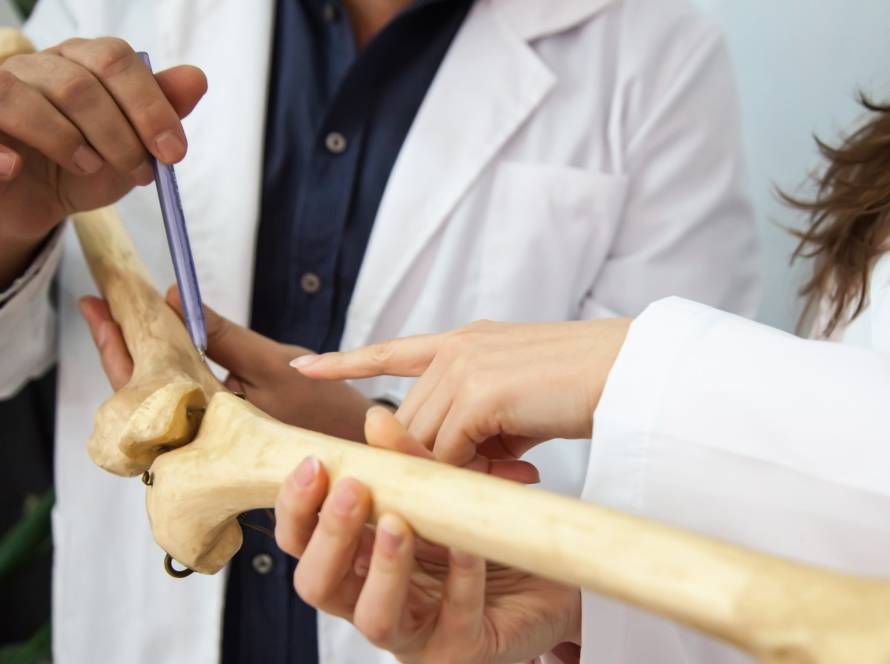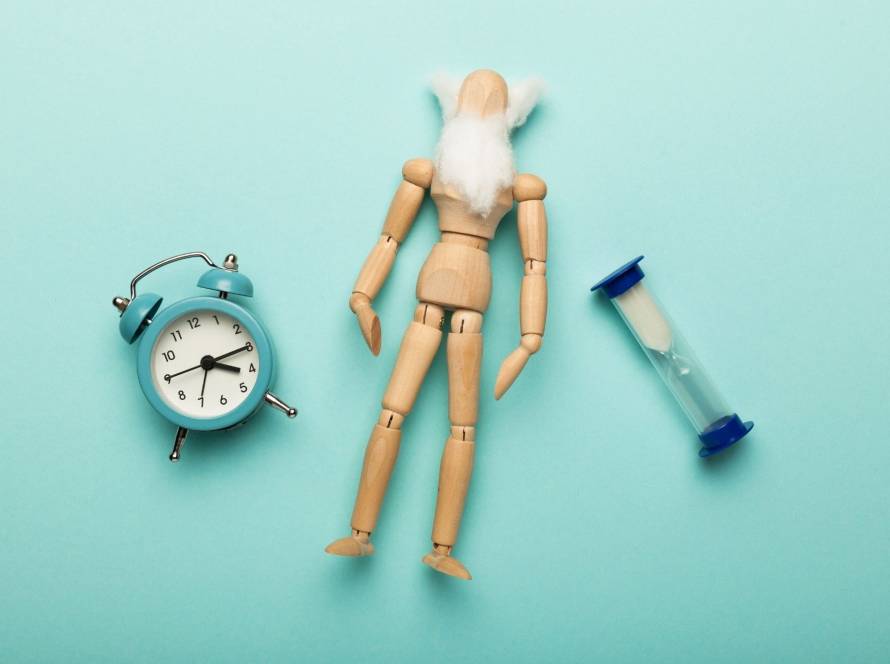Lithium’s anti-aging properties stand out as one of the most unexpected findings in recent longevity research. This common element, known mainly for treating bipolar disorder, shows remarkable life-extending benefits that go way beyond the reach and influence of mental health uses.
This piece dives into the science behind lithium’s anti-aging properties, explains how it works in our body and gives practical guidance if we’re interested in its potential longevity benefits.
What is lithium and why it matters for aging
Lithium is an alkali metal that naturally occurs throughout Earth’s crust. This trace element has been around since minutes after the Big Bang, even before stars and galaxies began to form. Beyond its prominent use as a psychiatric medication, lithium’s presence in our environment and bodies points to a deeper role in human health and longevity.
Natural sources of lithium in diet and water
Cereals, potatoes, tomatoes, cabbage and certain mineral waters serve as the main dietary sources of lithium. Spices like nutmeg, coriander seeds and cumin contain lithium too, but they don’t add much to our daily intake. Research shows that cereal grains and vegetables provide between 66-90% of daily lithium consumption, while animal-derived foods and drinking water make up the rest.
The amount of lithium in water changes by a lot depending on the region, mainly because of mineral rock weathering. Surface waters usually have 1-10 μg/L, while seawater contains 140-200 μg/L. These regional differences create natural test cases that help us learn about lithium’s effects. People living in areas with lithium-rich water show fascinating health differences compared to those in low-lithium regions.
Daily lithium intake ranges from several to several thousand micrograms based on what’s available in the environment. Some researchers suggest that a 70-kg adult needs 1000 μg/day (14.3 μg/kg body weight).
Lithium’s role in the body beyond mood stabilization
Lithium might not be officially listed as an essential micronutrient, but it does many important things besides its psychiatric uses. Studies exploring lithium-deprived animals showed decreased fertility and fewer viable offspring, which suggests it plays a crucial biological role.
Lithium helps restore sodium ion levels and regulates sodium-potassium ATP-ase activity. It stabilizes secondary relay systems and controls intracellular signal cascades that depend on cAMP and calcium. On top of that, it gets more neural stem cell production and thus encourages more protection against oxidative stress.
At the cellular level, lithium makes telomeres longer through boosted telomerase activity. It has remarkable neuroprotective properties, it increases hippocampal and cortical volume while promoting factors that protect neurons.
Biological mechanisms behind lithium longevity effects
The biological mechanisms that make lithium work as an anti-aging compound work through several cellular processes that protect against age-related decline. Learning about these mechanisms helps us understand how this simple element affects longevity so profoundly.
Telomere maintenance and aging
Lithium directly affects telomeres, the protective caps at chromosome ends that get shorter each time cells divide. Research shows that people who take lithium have longer telomere length if they have bipolar disorder. The time someone spends on lithium treatment affects how well their telomeres stay intact. Scientists found something interesting: lymphoblastoid cell lines from bipolar patients treated with lithium showed substantially longer telomeres compared to untreated cells. This suggests lithium might slow down cellular aging. Lithium seems to protect telomeres by boosting telomerase activity.
Epigenetic aging and DNA methylation
The way lithium changes epigenetic processes, especially DNA methylation patterns that control gene expression, matters too. Studies show lithium treatment can decrease global DNA methylation levels. This might reverse age-related methylation changes. Patients with bipolar disorder who responded well to lithium showed unique methylation profiles, scientists found 130 differently methylated positions compared to those who didn’t respond. Lithium turns on genes that help with demethylation. These genes help control methylation patterns needed for making new neurons.
Oxidative stress and inflammation control
There’s another reason lithium helps fight aging: it knows how to curb oxidative stress and inflammation. Lithium:
- Reduces production of reactive oxygen species (ROS) in cells;
- Decreases activity of superoxide dismutase (SOD) enzymes;
- Inhibits nuclear factor kappa B (NF-κB) activity;
- Balances pro-inflammatory cytokines while improving anti-inflammatory responses.
These benefits come from lithium stopping glycogen synthase kinase-3β (GSK-3β), which then activates the neuroprotective Wnt/β-catenin pathway.
Neurogenesis and brain aging
The brain shows some of lithium’s most remarkable effects. Lithium helps create new neurons. Research proves that lithium treatment substantially increases neural progenitor cell growth in the hippocampus. One study found a 1.34-fold increase after 28 days of treatment. This boost in new neuron production helps fight age-related cognitive decline. Lithium also helps cells survive by stopping cell death and increasing brain-derived neurotrophic factor levels. People who take lithium long-term show more gray matter volume in important brain regions, which shows how it protects the brain from age-related changes.
Evidence from research
Scientific research on lithium’s anti-aging effects comes from population studies, animal testing and cell experiments. These studies build a strong case for lithium’s ability to promote longevity.
Population studies on lithium in drinking water
Research on 1.2 million people in 18 Japanese municipalities showed an inverse correlation between drinking water lithium concentrations and all-cause mortality. Higher lithium levels linked to lower death rates remained true even after adjusting for suicide rates. Danish scientists studied 73,731 dementia patients and 733,653 controls and found lithium exposure was substantially different between dementia patients (median 11.5 µg/L) and controls (median 12.2 µg/L). People exposed to more than 15.0 µg/L showed a 17% lower chance of dementia compared to those exposed to 2.0-5.0 µg/L.
Cell line studies on telomere length
Cell research reveals lithium’s impact on telomere dynamics, especially in bipolar disorder patients. Lithium treatment substantially increased telomere length in lymphoblastoid cell lines from bipolar patients but not in controls. Another study showed lithium created 120-180% increases in telomere length compared to untreated controls, based on concentration. Lithium also stopped telomere shortening in neuronal cultures exposed to amyloid-beta fibrils, suggesting it might protect against Alzheimer’s disease.
Practical guide to lithium as an anti-aging supplement
We can take lithium supplements to get anti-aging benefits. This practical approach helps control the element’s longevity benefits. Microdose supplementation delivers protective effects without major side effects, unlike high-dose psychiatric lithium.
Lithium orotate anti aging: what is it?
Lithium orotate combines lithium with orotic acid, making it more bioavailable than pharmaceutical lithium carbonate. This form reportedly crosses the blood-brain barrier more efficiently, releasing lithium once inside. The supplement boosts mood stabilization, neuroprotection and cognitive enhancement as a nootropic. It supports anti-aging processes through GSK-3 inhibition.
Recommended low-dose ranges and forms
Research shows benefits from lithium doses between 300 micrograms to about 1,000 micrograms (1 mg) daily. This matches the suggested daily requirement of 1 mg for an average adult. Our typical dietary intake from food and water ranges from 0.5-3 mg daily. Some supplements contain 5-20 mg per dose. The lower range provides benefits while reducing potential risks.
How to choose a safe supplement
Here’s what to look for in lithium supplements:
- Check elemental lithium content;
- Look into manufacturer’s sourcing practices and quality control;
- Begin with lower doses and increase slowly if needed;
- Get periodic blood tests to check lithium levels.
Who should avoid lithium supplementation
Lithium supplements aren’t right if we have:
- Major renal or cardiovascular disease;
- Severe dehydration or sodium depletion;
- Pregnancy or breastfeeding status;
- History of lithium sensitivity.
Interactions with medications and conditions
Lithium affects many medications through changes in renal function. Watch out for interactions with diuretics, NSAIDs, ACE inhibitors and calcium channel blockers Talk to our healthcare provider before starting supplements. This is crucial if we take medications or have conditions affecting kidney function, thyroid health, or neurological status.
Low-dose lithium needs monitoring for toxicity signs. Watch for gastrointestinal distress, muscle weakness, drowsiness or coordination problems.
Lithium emerges as a remarkable element that could revolutionize the field of longevity. The evidence proves lithium can influence basic biological mechanisms tied to aging by maintaining telomere length and controlling epigenetic processes.
Lithium protects nerve cells and helps create new ones, which helps keep our minds sharp as we age, a key part of living longer and better.
Learn more about:


